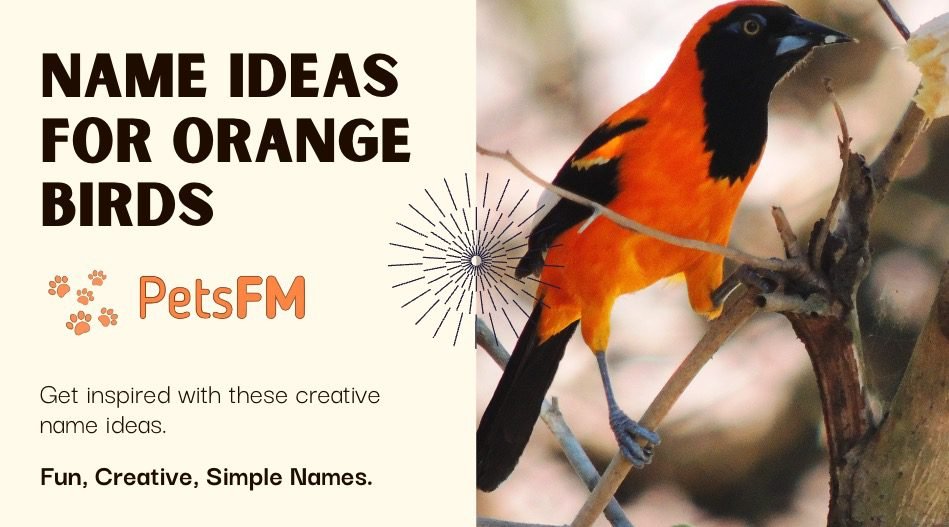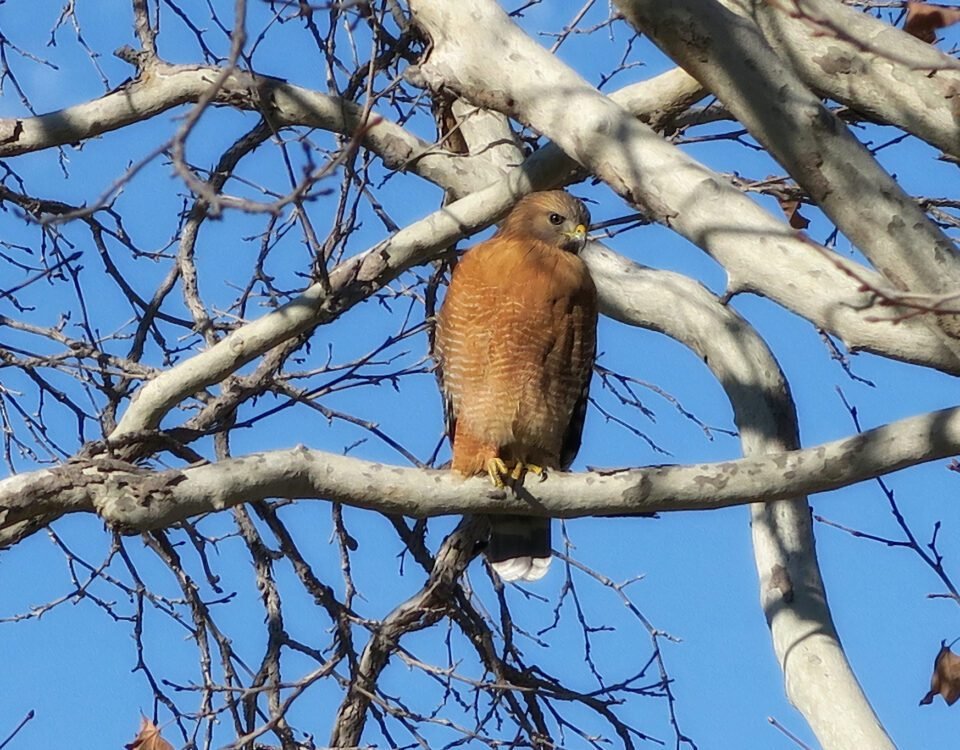


15 Human Foods That Birds Can Eat [Latest Guide 2024]
October 20, 2023


Do Owls Attack & Eat Foxes? Facts & Questions Answered
October 21, 2023Tomatoes are a favorite for many home gardeners due to their versatility and taste. But can they also serve as a treat for birds?
If you’re a gardening enthusiast, you may discover your tomato plants damaged or nibbled on and wonder if birds are responsible for it. Or you’re curious if you can share some leftover tomato pieces with the wild birds visiting your backyard or even with your pet birds.
Whatever your query regarding birds consuming tomatoes, we have the answers you’re looking for.
Yes, tomatoes can be safely offered to birds. However, when giving them to birds, it’s essential to do so in moderation due to their high acid content. Overfeeding tomatoes can be harmful to your pet bird.
Let’s explore further details about birds consuming tomatoes.
Related Read: Are Birds Herbivores? A Look at Different Bird Species
Is Consuming Tomatoes Safe For Birds?
Due to the high acidity of tomatoes and certain compounds they contain, offering them sparingly to birds is recommended.
Tomatoes are notably acidic, with their pH levels typically between 3.5 and 4.9. When consumed in excess, this can lead to digestive issues and discomfort in garden birds.
Moreover, while tomatoes are a good source of Vitamin D3, excessive amounts in a bird’s diet can be harmful. Overconsumption of Vitamin D3 can result in calcium deposits forming in various parts of a bird’s body, potentially causing pain and movement difficulties.
While many birds tend to regulate their tomato intake when given various food choices, it’s particularly crucial to monitor and limit their consumption during extreme weather conditions, whether cold or dry.
During such times, ensure they have a mix of nutritious bird foods to choose from.
Unripe Or Ripe Tomatoes, Which Is Better For Birds?
Birds can occasionally enjoy ripe red tomatoes as a treat. However, it’s crucial to avoid feeding them unripe green tomatoes. This is due to a toxic alkaloid called solanine, which is prevalent in green tomatoes and the leaves and stems of the tomato plant. As tomatoes ripen and turn red, the solanine content decreases significantly.


Tomatoes
It’s worth noting that smaller tomatoes, like cherry tomatoes, tend to retain a higher solanine content than larger varieties. Therefore, if you’re considering feeding cherry tomatoes to birds, be extra cautious and offer them in moderation.
A bird consuming solanine may exhibit symptoms like breathing difficulties, muscle twitching, tremors, or even paralysis. Consequently, it’s best to always avoid offering green tomatoes to birds and ensure that any leftover red tomatoes are free from green stems or tops.
Related Read: Learn If Your Birds Can Eat Lettuce: Latest Guide
Are There Any Benefits Of Feeding Tomatoes To Birds?
Tomatoes, when fed in moderation, can be beneficial for birds. They offer an array of essential nutrients vital for a bird’s growth, flight, and reproduction.
Benefits of tomatoes for birds include:
- Lycopene Content: This powerful antioxidant, responsible for the red hue of ripe tomatoes, helps protect bird cells from oxidative damage.
- Vitamin Rich: They contain vitamins A, B6, B9, C, and K, which promote healthy bones, eyes, and immunity and support the nervous system.
- Mineral Boost: Tomatoes supply vital minerals like potassium (for fluid balance), calcium (for bone and beak development), and phosphorus (vital for tissue repair).
Which Birds Are Attracted To Tomatoes The Most?
- Crows: Highly intelligent and opportunistic, crows might feed on tomatoes, especially if they’re readily accessible. They tend to be more attracted to the soft, ripe tomatoes, which are easier to pick apart.
- Sparrows: These tiny birds usually prefer seeds and insects, but they might nibble on ripe tomatoes when other food sources are scarce.
- Blue Jays: Blue Jays are omnivorous. They mainly eat nuts, seeds, and insects but won’t avoid trying a juicy tomato in a garden.
- Thrushes: Thrushes generally have a varied diet of worms, snails, fruit, and berries. Ripe tomatoes can sometimes attract them due to their fruit-like appearance and soft texture.
- Blackbirds: Mostly feeding on insects and earthworms, Blackbirds are also known to enjoy fruits and berries. They might peck at ripe tomatoes in gardens, especially if they’re ground-level.
- Gulls: These coastal birds are highly adaptable and will often eat anything they can find. If they venture into urban areas or gardens, they might peck at tomatoes, especially if other food sources are limited.
- Pigeons: Pigeons are known to be quite versatile in their diet, consuming seeds, fruits, and vegetables. If tomatoes are accessible in a garden, they might take the opportunity to have a taste.
- Magpies: With their distinctive black and white plumage, Magpies are curious birds with a diverse diet. While they primarily consume insects, seeds, and grains, they can be attracted to ripe tomatoes, especially if they’re shiny and visible.
Are Birds Attracted to Tomato Leaves?
While tomato plant leaves can be harmful if consumed in large amounts by humans, they also pose potential risks for birds. Nevertheless, some birds might show interest in these leaves, particularly when young and tender.


Tomato Leaves
Birds often target insects on the plant or remove leaves to easily access the ripe fruits rather than consume the leaves themselves. However, there are instances where they might nibble on them.
Interestingly, not all interactions with tomato leaves are about consumption. Birds may occasionally pick off these leaves to incorporate them into their nests, contributing to some of the observed damage in garden tomato plants.
Must Read: Can Birds Eat Watermelon? Is Watermelon Safe for Birds?
Can Birds Eat Tomato Seeds Or Seedlings?
Birds, especially those primarily eating seeds, can be attracted to freshly sown tomato seeds, especially near the soil’s surface. This poses a challenge for gardeners who directly plant tomatoes, as some birds may consume the seeds before they can sprout.
However, some birds may also be attracted to young tomato seedlings, either consuming them or simply plucking and discarding them. This behavior can be particularly frustrating for gardeners.
While birds are often more attracted to seedlings of other plants, like those in the cabbage family, tomato seedlings aren’t excused from their attention.
Can Birds Eat Raw Tomatoes?
Yes, birds can consume raw tomatoes. Offering them whole or chopped fresh tomatoes in your garden is acceptable. Ensure the tomatoes are fresh, rot-free, and devoid of green parts to minimize potential risks.
Can Birds Eat Cooked Tomatoes?
Birds can eat cooked tomatoes without any harm. If you have tomato-based leftovers, offering them to birds can be an eco-friendly way to reduce waste.


Can Birds Eat Cooked Tomatoes?
However, be mindful of additional ingredients like salt in the cooked food. If salt or other additives are present, it’s best to compost these scraps.
Can Birds Have Tomato Sauce/Ketchup?
Tomato sauce can be safely offered to birds in a dish. Still, it’s essential to ensure no added harmful ingredients like salt. On the other hand, ketchup could be better for birds due to its salt and sugar content.
Additionally, canned tomatoes might have added citric acid or lemon juice, making them more acidic and less suitable.
Can Birds Have Sun-Dried Tomatoes?
Sun-dried tomatoes are safe for both wild and pet birds. They tend to have a reduced acid content compared to fresh tomatoes, making them a potentially better option.
Although tomatoes might not be the first food choice for many garden birds, they can serve as a safe and occasional treat.
How To Serve Tomatoes To Birds?
To attract birds like robins, woodpeckers, and thrushes to your bird table with tomatoes, follow these preparation steps:
- Rinse Thoroughly: If your tomatoes aren’t organic, wash them thoroughly. Use a designated product or a gentle water-vinegar mix to eliminate potential pesticide residues.
- Trim and Remove: Dispose of any green sections, stalks, and green tops, particularly common on vine tomatoes, from stores.
- Cut Into Small Pieces: Breaking tomatoes into smaller chunks allows birds, especially the tinier ones, to pick up a piece and take off quickly.
Always remember to offer tomatoes as an infrequent treat and ensure they aren’t the sole food option for the birds.
Can You Offer Tomatoes to Wild Birds or Pet Birds?
Although gardeners might sometimes see birds as a nuisance to their tomato crops, it’s crucial to recognize the various benefits birds bring to a garden. Not only do they contribute to the fertilization and natural cycles of a garden, but some also play roles in pollination and keeping pests at bay.
To safeguard your tomatoes, it might also be beneficial to ensure there is ample food for these birds in your garden.
If you’re pondering whether tomatoes are a suitable offering for the wild birds visiting your garden or pet birds, the answer leans towards positivity. However, it’s vital to serve them sparingly and in moderation.
Editor’s Pick: Why Do Birds Hit Windows? Is It Considered Spiritual?
Final Thoughts
Tomatoes are a tasty fruit commonly incorporated into our meals. You might also consider offering them to birds. Indeed, birds can consume tomatoes and often relish them when presented.
While tomatoes have numerous health advantages, they also have some potential drawbacks. Before giving this fruit to our feathered friends, it’s essential to be aware of these.



